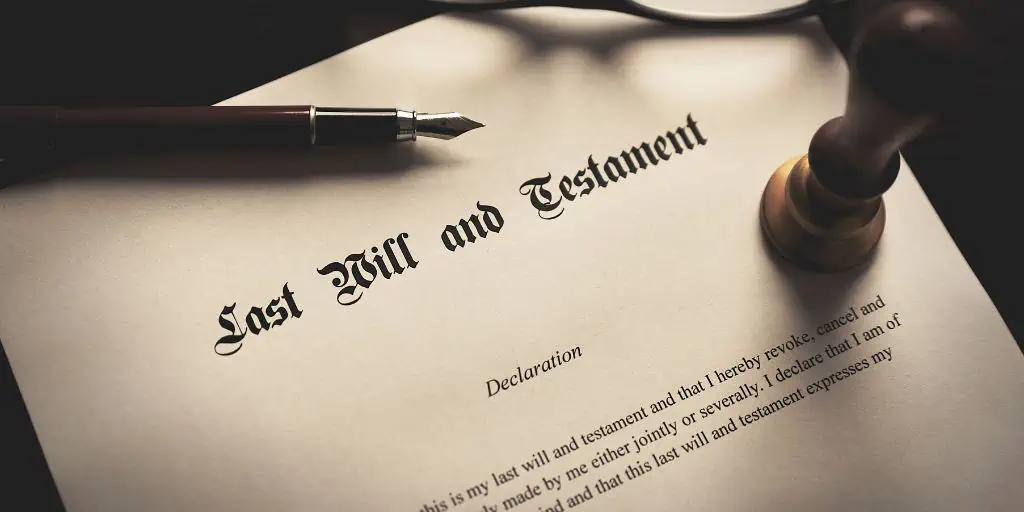What Is an Executor?
REtipster does not provide legal advice. The information in this article can be impacted by many unique variables. Always consult with a qualified legal professional before taking action.
Shortcuts
- An executor carries out the terms of a deceased person’s will (or applicable state laws, if the decedent has not left a will).
- The executor is in charge of managing the deceased person’s estate throughout the probate process.
- The executor also pays taxes, debts, bills, and any other liabilities the deceased person leaves, and may decide whether to sell the decedent’s properties to pay off outstanding debt or obligations.
What Does an Executor Do?
Simply put, an executor takes care of someone’s financial affairs after that person, legally known as the decedent, dies. The executor serves as a personal representative and manages the deceased person’s estate throughout the probate process.
In this context, estate refers to everything the decedent owns, from real property (such as land and buildings) to personal property like vehicles, cash, investments, personal belongings, and the like[1].
Probate, meanwhile, refers to the legal process that determines how the assets of a deceased person will be distributed according to the will[2]. For example, the probate may decide that the decedent’s properties may be transferred to beneficiaries or sold.
The executor may also pay taxes owed, debts, bills, and any other liabilities of the decedent using the estate assets, subject to approval by the probate court. If so, the executor may have to decide which properties need to be sold, who to sell them to, at what price, and more.
Who Can Be an Executor?
An executor is often named in the will. Most people name their spouses, children, parents, and other immediate family members as executors. Others choose their personal attorneys, banks, or trust companies[3].
Regardless of whoever is chosen as an executor, they must be of legal age and have no criminal history[4]. A person may appoint one executor or select several people to take the role.
The court will appoint an executor if the deceased person has no will or does not name one[5]. This person will be called an administrator of the estate.
Sometimes, a named executor may decline the role. In this case, the court will find a replacement based on state laws[6].
Roles and Responsibilities of an Executor
The roles and responsibilities of an executor differ from state to state. In the United States, the common tasks of an executor include the following[7]:
- Obtaining several certified copies of the decedent’s death certificate.
- Finding the will and filing it with the local probate court.
- Filing a petition for probate. One will need confirmation from the probate court that the will is legal and valid. This gives the executor the authority to carry out the will and administer the estate.
- Notifying heirs and beneficiaries. The executor works with heirs and beneficiaries and updates them about the probate process.
- Notifying government agencies, banks, financial institutions, creditors, lenders, insurance providers, and other organizations that provided benefits and services to the deceased (social security administration, for example).
- Making a detailed inventory of the estate’s assets and liabilities. The executor must go through real estate deeds, tax records, and other financial and legal documents to do this.
- Locating, protecting, and securing assets like homes, vacation and rental properties, cars, businesses, bank accounts, and the like. The executor may also need to have valuable items appraised and maintain these assets and properties until these can be distributed or sold.
- Opening an estate bank account, where the executor will deposit funds owed to the deceased. The funds in this account will be used to pay off outstanding debts or to disburse to beneficiaries.
- Collecting all money owed to the deceased, such as final wages, dividends, insurance benefits, and rents of commercial or residential properties, and depositing them in the estate bank account.
- Paying bills. These may include mortgage payments, utility payments, homeowner’s insurance, and homeowners association fees.
- Paying off any outstanding debts. If the estate’s value is insufficient to cover all debts, the court will decide how payments are prioritized.
- Filing the deceased person’s final income tax returns. Large estates will require state and federal estate tax returns.
- Distributing the remaining assets to heirs and beneficiaries according to the deceased person’s wishes as outlined in their will. If there is no will, state laws will apply.
BY THE NUMBERS: An executor’s fee may be stated in the will or dictated by state laws. It is usually a percentage of the value of the probate estate and may range between 1.5% to 4%.
Source: Executor.org
Selling Real Property as an Executor
Some instances may call for the executor to sell the deceased person’s property, such as when the executor is also the sole beneficiary of the property. The executor also has the right to sell the property and use the sale proceeds to pay any outstanding debts[8].
However, the executor must secure the probate court’s approval before selling the decedent’s property. The executor must submit a signed contract of the deal and a copy of the buyer’s offer to the probate court to get approval and close on the sale. If there are multiple beneficiaries, they must sign a waiver showing their agreement with the transaction and the offered price[9].
Once the court approves, the executor can close the deal and sign an executor’s deed. The sale proceeds will be used to pay all debts; the remaining funds (if any) will go to the estate bank account.
What Can an Executor Not Do?
An executor has a range of powers in enacting the decedent’s last will, but there are a few things they cannot do[10]:
- Sign the will on behalf of the deceased.
- Change the names of beneficiaries in the will.
- Stop anyone from contesting the will.
- Distribute assets before the person who wrote the will passes away.
- Use estate funds for personal expenses.
- Sell properties for less than market value. If an executor sells the property to themselves, it must be for fair market value.
Sources
- Kagan, J. (2020.) What Is an Executor. Investopedia. Retrieved from https://www.investopedia.com/terms/e/executor.asp
- Merrill, T. (n.d.) Probate Real Estate Guide For Buyers & Sellers. Fortune Builders. Retrieved from https://www.fortunebuilders.com/probate-real-estate-guide/
- McDuffey, T. (2022.) How to Become an Executor of an Estate. LegalMatch. Retrieved from https://www.legalmatch.com/law-library/article/how-to-become-an-executor-of-an-estate.html
- Randolph, M. (n.d.) Who Can Serve as Executor of an Estate? Nolo. Retrieved from https://www.alllaw.com/articles/nolo/wills-trusts/who-serve-executor-legal-restrictions.html
- FindLaw. (2022.) Probate Process: Estate Administration Without a Will. Retrieved from https://www.findlaw.com/estate/probate/probate-process-without-a-will.html
- Fontinelle, A., et al. (2021.) Executor of Estate: What Do They Do? Forbes. Retrieved from https://www.forbes.com/advisor/mortgages/executor-of-estate/
- Araj, V. (2021.) Executor Of Estate: Definition And Duties. QuickenLoans. Retrieved from https://www.quickenloans.com/leahttps://homeguides.sfgate.com/can-executor-sell-house-probate-74257.htmln/executor-of-estate
- Alley, R. (n.d.) Can an Executor Sell a House in Probate? Home Guides SFGate. Retrieved from https://homeguides.sfgate.com/can-executor-sell-house-probate-74257.html
- Bartsch, C. (2019.) 7 Tips for Executors Tasked With a Difficult Job: Selling the House. HomeLight. Retrieved from https://www.homelight.com/blog/how-does-an-executor-sell-a-house/
- Kuffel, H. (2019.) What An Executor Cannot Do. SmartAsset. Retrieved from https://smartasset.com/estate-planning/what-executor-cannot-do












